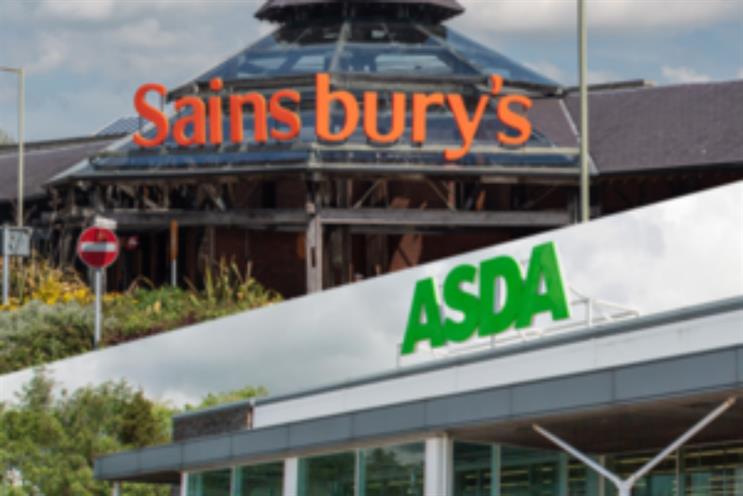Asda's and Sainsbury’s brand reputations were built at a time when shoppers thought of supermarkets as we do football teams. We would choose one (or, more often, our parents would choose one) then stick with them for life – even if they left you feeling frustrated and angry on a Saturday afternoon. Both stores flourished in a simpler time when matching the label on your beans to that on your washing powder bizarrely made sense.
Clearly the retail landscape has now radically and irreversibly changed. First came the supersizing and then superskinny-ing of store formats, bending and flexing in and out of our towns and cities, trying to keep up with our ever more jumbled working hours.
Then came the German invasion: ruthless efficiency, exotic products and smart pricing creating more than just disruption, but systemic change to our shopping list. Most recently and perhaps most dramatically is the entry into the market of online retailers, the true effects of which we are still to feel. I’ll eat my hat if you aren’t buying your soup from Amazon in three years’ time.
Obviously, there’s the inevitable shop floor and head office layoffs. The duplicate store closures and the likely price war (which benefits the customer short term but screws everyone else from farmers to shelf stackers in the long run). There are lots of reasons why this corporate marriage would be bad for the general public, but perhaps not for the same reasons the competition committee thinks.
The discussion around mergers always gravitates towards money-saving exercises for the stores and shoppers. The leadership on both sides claim the customer will ultimately reap the rewards of "streamlining" - but at what cost?
If we step back and look at the reasons why the market is changing, it leads to a different answer. A merger can elevate lazy and simplistic thinking while strangling innovation and imagination.
Perhaps customers could be better served if both stores were forced to stay separate, but also encouraged to challenge each other harder. Both brands have their virtues and opportunities but they need completely reimagining, not simple relabelling.
Asda in particular brings problems to the current relationship, primarily because its brand and target audience has been particularly ill-defined over recent years. Its model (big warehouse for the weekly shop) also doesn't match our new model of shopping.
Furthermore, the brand is driven by price cuts, not savvy shopping (like the discounters that make the shopper feel they are in control rather than the other way around).
But what if it doubled down on its weirdness and basicness? Asda’s huge hangers could be an opportunity to corner the market in bulk buy and basic provisions.
Currently no supermarket has responded to Generation Deliveroo, who see food as fuel and Instagram content, not as something that enriches lives. How could they help people shop less, waste less, as well as spend less? Canada’s Loblaws, for example, manages to do the basics with charm and style.
Sainsbury’s, meanwhile, is the Lib Dems of the retail sector. We all vaguely like them, but nobody has a clue what they stand for and nobody has got behind them since 1975. It has a huge opportunity to reawaken its civic roots and supercharge the positive side of its middle class, village green vibe.
Again, there’s a need to do this with humour and humanity, and the localisation and warmth of Trader Joe’s is a great place to start. There’s plenty of space for a supermarket brand that takes a more proactive community stance and becomes a champion of important social issues – food waste, food banks, obesity.
The retail sector is in an era of great change. Great change can provoke great thinking, or cynical cost saving. If we shoppers want a better deal, we should be asking our supermarkets to innovate – not amalgamate.
Chris Moody is global chief design officer at Wolff Olins


